Are you travelling with expired toiletries? If you’re not monitoring the expiry dates of the cosmetics and toiletries in your toiletry travel kit, you could be.
Table of Contents
- Risks of using expired toiletries and cosmetics
- Expiry dates and packing light travellers
- Expiry dates of toiletries and cosmetics
- No expiry date? No problem
- Tips on managing expiry dates of toiletries and cosmetics
- 1. Mark dates
- 2. Regularly cull your collection
- 3. Avoid jars
- 4. Keep applicators clean
- 5. Discard after any infection
- 6. Decant ‘just enough’
- 7. Regularly clean travel-sized containers
- 8. Collect a variety of travel-sized containers
- 9. Avoid exposure to sunlight
- 10. Keep lids and openings clean
- 11. Don’t share toiletries and cosmetics
- 12. Carefully monitor sunscreen dates
- 13. Look for signs of degradation
- 14. Pack denture cleaning tablets
Risks of using expired toiletries and cosmetics
Which products have expiry dates? It’s a rare product that doesn’t expire and lose its effectiveness. Besides, expired cosmetics and toiletries can pose health risks such as eye or skin irritation, inflammation, swelling, sunburn, blisters, dermatitis, acne outbreaks, allergic reactions, or bacterial infections.
These issues aren’t pleasant to deal with at any time, and certainly not while you’re travelling.
Expiry dates and packing light travellers
Why might the expiry dates of toiletries and cosmetics be an issue for travellers? Why might carry-on travellers be more at risk of packing expired products?
Travellers who pack light tend to:
- remove products from the original packaging and decant into travel-sized containers.
- keep two sets of toiletries — one for home use and one for travel, so products are used up over a longer period.
- top up many of their travel toiletries on their return to be travel-ready for the next trip.
These practices could lead to not paying attention to expiry dates and increased exposure to health risks.
Expiry dates of toiletries and cosmetics
The following information might be useful when developing your approach to avoid travelling with expired toiletries and cosmetics.
- The regulatory framework governing the listing of expiry dates on cosmetics and toiletries varies from country to country. Some products contain expiry dates; some don’t.
- It’s more common for products to display a Period After Opening (PAO) date. The PAO is expressed as a symbol resembling a jar with an open lid. Typically, it appears near the bar code. Inside the symbol will be a number followed by ‘M’ for months or ‘Y’ for years. For instance, if the icon displays “12M,” the product is safe to use for twelve months after opening. While not a key determinant of the life of a product, the PAO symbol gives a rough indication of when use should be discontinued.
- Powders tend to last longer than liquids and creams.
- Unopened skincare products will last longer than opened products. The more a product is exposed to air and bacteria, the shorter its lifespan.
- Products in a pump bottle or tube will last longer than something in a small pot or jar. Opening a jar exposes the contents to oxygen. Dipping a finger into a product introduces microorganisms such as bacteria and fungi (mould and yeast) and creates a much higher risk of contamination.
- Products last longer if they’re stored away from heat, sunlight, humidity, and air. Products stored under ideal conditions may be acceptable long after the expiration or PAO date has been reached.
No expiry date? No problem
If any of your cosmetics and toiletries don’t list an expiration or PAO date, the following charts can be used for guidance.
How soon a product expires depends on ingredients such as preservatives and antioxidants, PH levels, and packaging. Keep in mind that quality and efficiency may deteriorate if it hasn’t been properly stored.
Tips on managing expiry dates of toiletries and cosmetics
The limited shelf life of cosmetics and toiletries needs to be factored into shopping, storage, and decluttering habits. It’s an additional consideration for packing light travellers when decanting toiletries and replenishing them for the next trip.
Use the following tips to lessen the possibility of travelling with expired products.
1. Mark dates
If a product doesn’t contain an expiry date, use a label maker or a finely tipped permanent marker to record the purchase date. If it has a PAO symbol, note the date you opened it. Or, after opening, record the end of the period of suitability suggested by the PAO.
2. Regularly cull your collection
Cull your collection of cosmetics and toiletries at least twice a year.
3. Avoid jars
Where possible, purchase products in containers other than jars. Every time a jar is opened, its contents are exposed to air. If fingers are dipped into a jar to scoop and apply a product, the risk of contamination is increased.
Decant into travel-sized containers that pump, squirt, or squeeze. If a jar cannot be avoided, use a clean applicator, scoop, sponge, or some other utensil to retrieve the product. Keep in mind that as soon as an applicator touches the skin, it collects bacteria. Also, wash your hands before use.
4. Keep applicators clean
Powders such as eye shadow and blush have a longer shelf life, but it’s essential to keep their applicators clean. Sharpen an eyeliner pencil before each use to prolong its life and avoid eye infections.
5. Discard after any infection
Throw out eye makeup products after an eye infection, or lipstick after an illness or cold sore.
6. Decant ‘just enough’
When decanting products for travel, fill each container with just enough product given the length of the trip. Determining ‘just enough’ can be ascertained through trial and error at home. This saves on the packed weight of your toiletry kit. In addition, it helps manage what, if anything, needs to be discarded on your return because a particular product has expired. It also allows you to regularly clean your travel containers.
7. Regularly clean travel-sized containers
Develop a cleaning regimen for your travel-sized containers. Small bottles with narrow openings can be difficult to clean. Use a bottle brush designed to clean drinking straws or narrow-necked bottles. Or, break up a denture-cleaning tablet, add it to the bottle with hot water, and vigorously shake it.
8. Collect a variety of travel-sized containers
When products are used up or discarded, save any containers that are smaller than 3.4 oz/100 ml for travel. They’ve been built for liquids, gels, creams, or powders and shouldn’t leak, clog, or stick when filled with similar products. The cleaner Goo Gone will remove any glue residue from labels no longer needed.
9. Avoid exposure to sunlight
Toiletries exposed to high temperatures or sunlight may deteriorate before the expiration date. When travelling, keep these realities in mind. For example, keep sunscreen out of direct sunlight or in a hot car. In hot climates, move your toiletries kit from your standard bag in the storage area of a bus to your personal bag in the air-conditioned cabin.
10. Keep lids and openings clean
Wipe the opening of containers to remove any excess product and prevent the growth of bacteria. Tightly close lids when not in use.
Avoid sharing your toiletries and cosmetics with a travelling companion. When more than one person uses a product, it leads to increased bacterial growth and a higher likelihood of bacterial infection. It’s safer if you keep your lipstick, eyeliner, mascara, toothpaste, and skincare products to yourself.
12. Carefully monitor sunscreen dates
Don’t mess with sunscreen expiry dates. Sunscreen is expensive, and it may be tempting to use last season’s purchase but do so only if it hasn’t expired and has been correctly stored. The SPF can degrade over time, and the result could be a nasty sunburn.
13. Look for signs of degradation
Notwithstanding the existence of expiry and PAO dates, products should be monitored for signs of degradation. If a product crumbles, cracks, separates, dries out, becomes runny, lumpy, or hardens when it shouldn’t, discard it. If it changes colour or appearance, has a weird odour, feels different on the skin than it did previously, or doesn’t perform as intended, discontinue use.
14. Pack denture cleaning tablets
Keep a toothbrush free of germs by running hot water over the bristles before and after use. Hot, soapy water does a decent job of keeping a hairbrush or comb clean. To sanitize these items, and your eyeliner sharpener, applicators, makeup brushes, nail file, and empty travel-sized toiletry containers, pack some denture cleaning tablets.
What practices have you adopted to ensure you’re not travelling with expired cosmetics and toiletries?
Might you be interested in the following related posts?
- Pack light with bar shampoo
- No soap? No problem travelling with soap leaves
- 16 Tips on organizing a 3-1-1 bag for toiletries and cosmetics
- Create a travel comfort pack for easy access to self-care essentials
Care to pin for later?

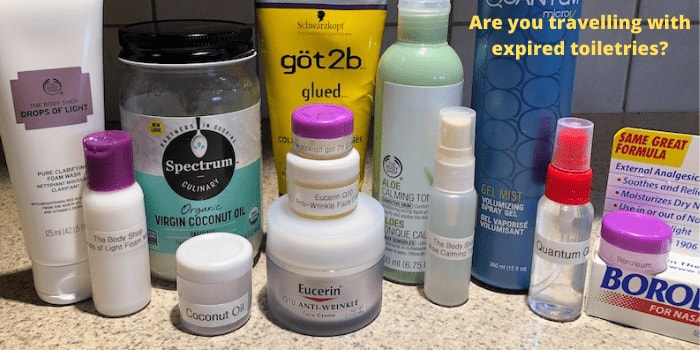
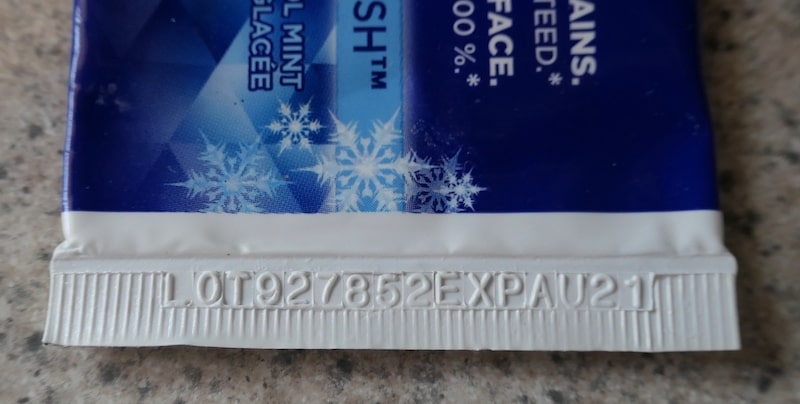
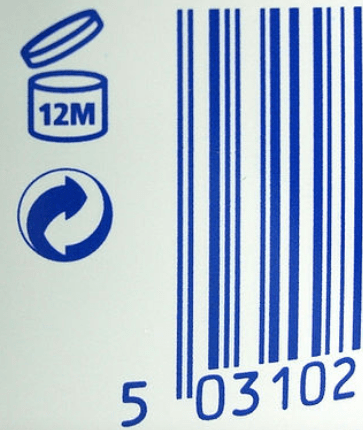
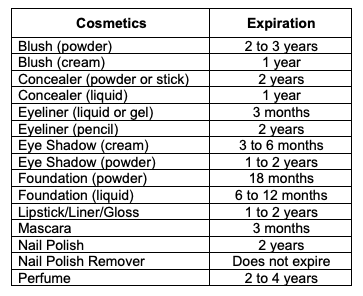
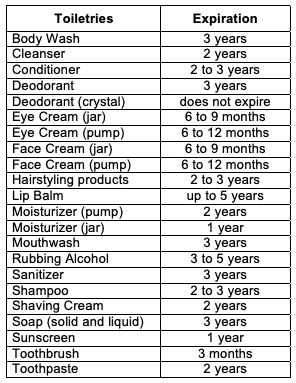
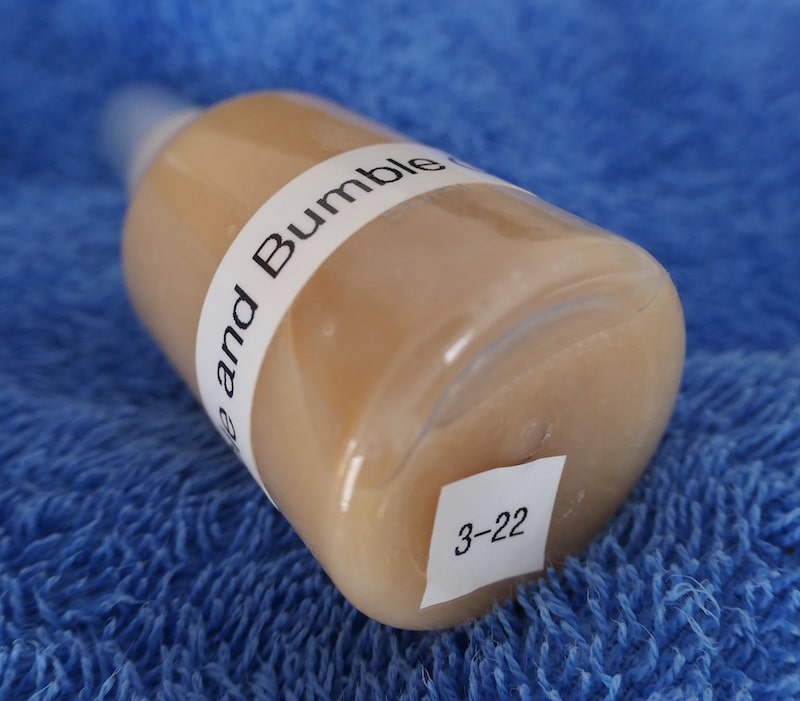
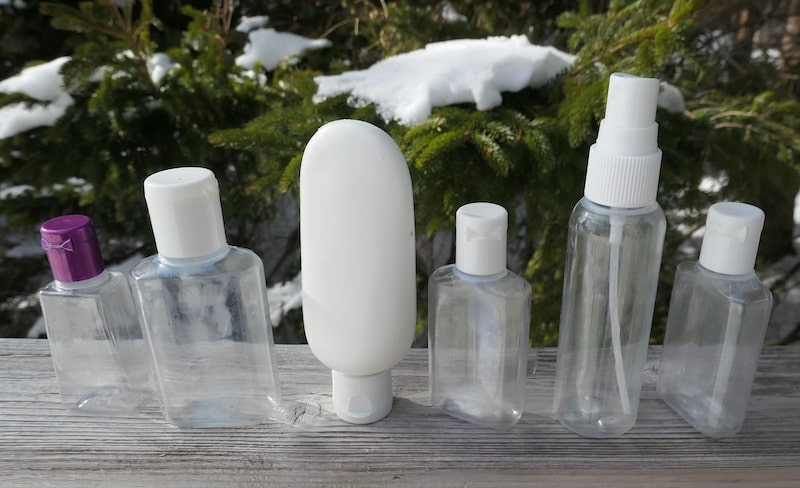
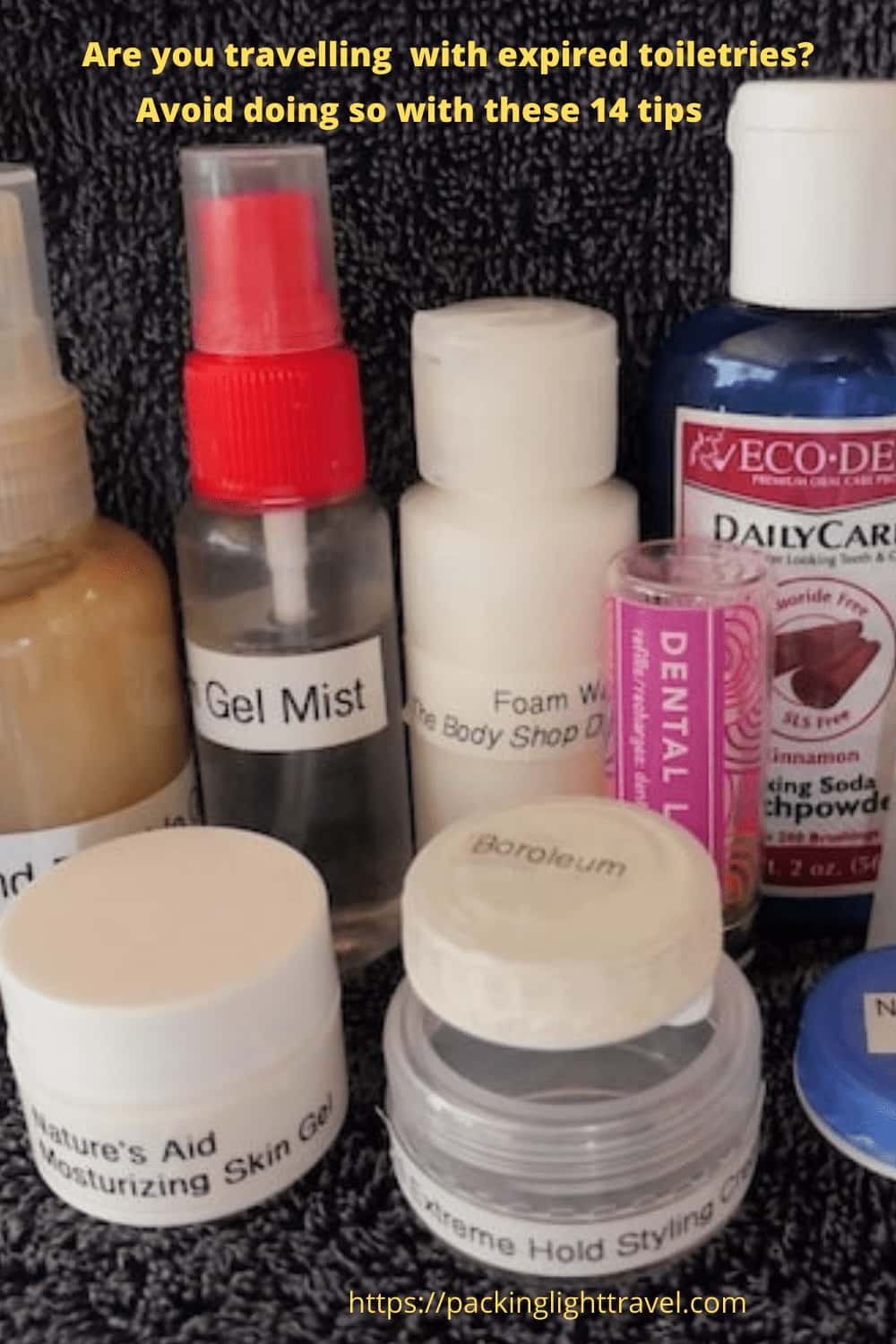




There are some great tips in this article; I especially like the list you provide with approximations of the shelf life of various products. Gonna go sort the stuff in my bathroom and travel drawer now!
Cheers!
Thank you for this Anne. I am keeping these charts handy for the next time I/we are allowed to travel!
These are such great tips! As a frequent traveller (before Covid anyway!) I always kept a pre-packed toiletries bag so there were some items that were definitely in there for a long time! We just cleared it out a few weeks ago and it was a shame to throw away all of our unused sun creams, but as we live in the UK, we rarely put it to use here! I love the idea of labelling bottles when I decant into travel bottles. I’m definitely going to try these ideas out when we’re travelling again! Thanks for the great guide!
A wise reminder to check the expiration dates of toiletries before traveling! You certainly want to have Dramamine that isn’t expired when traveling by cruise ship or boat.
What a unique post. I know most people like myself would just use the same toiletry bag without checking the dates on products . This is a great reminder to not use any expired products . The denture cleaning tabs are a great cleaning hack .
What an informative post! I didn’t know that about the shelf life of products. Thanks for sharing!
Great tips! I regularly decant into smaller containers. Good to know re jars and bottles vs. pumps and squeeze containers. Never thought of that.
This is super interesting! I had never really thought of this before! I think it’s so important to know how long each product lasts (I had no idea) – so thank you for including that helpful chart! I’m going to go through all of my toiletries this weekend to make sure they’re not out of date!
I’m sure I’m 100% guilty of this, as much as I hate to admit it. Will try your tricks!
Such great tips! I especially agree with marking the date when you remove original packaging.
So smart! I’ve always struggled with toiletries in reusable containers because of this. Now I feel more confident to try them.
Much needed article. I often tend to ignore the expiry dates of my travel essentials and I guess most of them have expired by now since I have hardly travelled anywhere in the last one year. Will keep these tips in mind for my next trip, thanks!
Another very informative post, thank you! Pre-pandemic, I did was guilty of most of this and I will keep your guidance in mind as I restock things once I start traveling again. Although I have often seen the symbol, I never knew what the PAO was. Thanks for the new information. I am Pinning this for later.
Erica recently posted…Highlands, Islands, and Unforgettable Cities – Your Scotland Trip Planner
Expired toiletries and cosmetics can pose a number of risks to your health, including the potential for increased inflammation. Over time, the active ingredients in these products can break down or become less effective, making them less capable of treating or preventing inflammation.
Cynthia Trent recently posted…Are Chiropractors REAL Doctors?